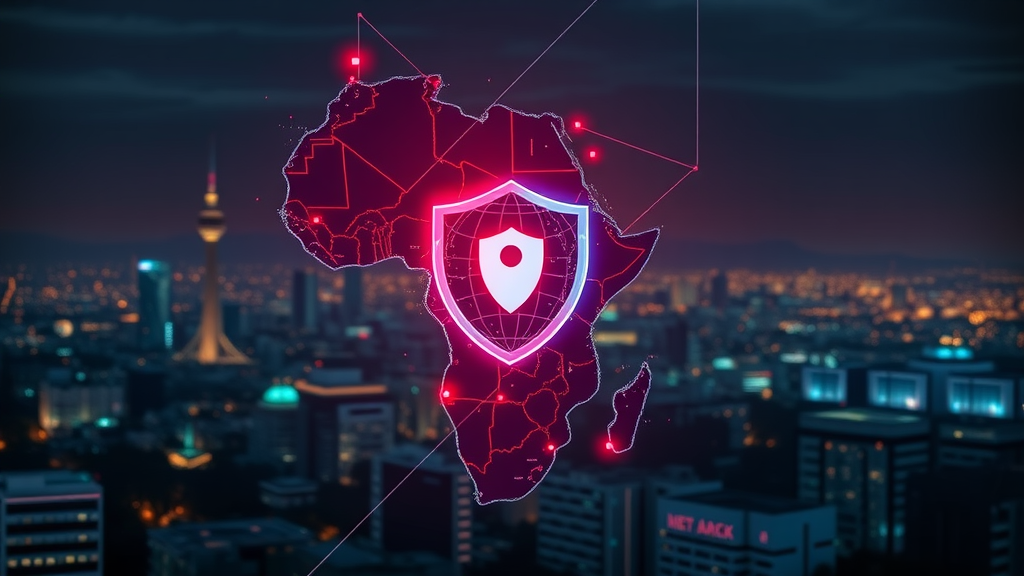Startling Statistic: Nearly 43% of cyberattacks target small-to-medium enterprises, disproportionately jeopardizing African businesses due to limited cybersecurity resources and infrastructure gaps. In this landscape, safeguarding your digital territory is not just technical necessity, it is a strategic imperative for securing your sovereignty in the digital age.
Understanding Website Security for Digital Sovereignty: The First Line of Defense
In the evolving digital world, website security for digital sovereignty has emerged as a unique priority for businesses, especially across Africa. Your website acts as your digital embassy, the frontline representative of your brand and business identity online. Failing to secure this asset equates to leaving your diplomatic gates wide open to cyber threats.
Website security encompasses a range of protective measures designed to shield your digital territory from intrusion, data theft, defacement, and malware distribution. African businesses, in particular, face elevated risks because many currently rely on security protocols that do not align with the complex and rapidly shifting cyber threat landscape prevalent on the continent.
Brand Development CMOs, of Best Africa Directories Agency, emphasize the critical nature of this protection: “Without strategic website security that aligns with digital sovereignty principles, African enterprises expose themselves to devastating breaches that jeopardize customer trust, brand reputation, and even regulatory compliance.” This calls for an elevated approach beyond conventional security tactics — one that integrates sovereign-focused strategies tailored for African digital environments.
Why African Digital Territories Face Heightened Risk and the Cost of Overlooking Security
African digital territories operate at a disadvantage in the cybersecurity arena largely due to infrastructure limitations and the use of protocols designed for different cyber landscapes. This mismatch creates systemic vulnerabilities, making African businesses prime targets for sophisticated cyber adversaries.
When a website is compromised, the damage transcends mere technical setbacks. It becomes a breach of sovereignty—akin to an invasion of a nation’s physical borders. Consequences include the theft of citizen data (your customers), defaced websites that erode brand authority, malware propagation damaging reputations, and penalties from search engines leading to restricted digital commerce.
Brand Development CMOs of Best Africa Directories Agency warns, “Every data breach isn’t just about lost information—it’s a violation of trust and sovereignty that can cripple African businesses' ability to compete digitally and maintain loyal customer bases.” For companies engaged in e-commerce or subscription-based services, this threat is even more acute, necessitating robust, sovereignty-focused security frameworks.
Foundation-Level Sovereignty: Choosing Strategic Hosting for Website Security for Digital Sovereignty
The choice of hosting infrastructure is fundamental to establishing a secure digital nation. While budget providers might seem economically viable, they often sacrifice critical security layers imperative for digital sovereignty.
Secure hosting platforms must offer integrated firewalls to guard against intrusion, automatic backup protocols for data preservation, rigorous SSL certificate management to ensure encrypted communications, and advanced malware detection systems. African businesses should consider reputable hosting partners like SiteGround and WP Engine, as well as vetted local providers tailored to the continent’s unique needs.
Brand Development CMOs highlights, “Your hosting provider sets the ground rules for your digital territory’s defense. Opt for infrastructure that prioritizes embedded security to fortify sovereignty from the foundation up.” This strategic hosting decision not only protects your website but also strengthens your stance in Africa’s emerging digital economy.
SSL Certificates: The Diplomatic Encryption Standard for Website Security for Digital Sovereignty
SSL certificates are no longer optional—they are essential diplomatic seals that guarantee encrypted communication between your website (the sovereign embassy) and your digital citizens. This encryption protects data from interception, fostering trust and credibility.
Google’s search algorithms actively reward sites using HTTPS with higher ranking positions, highlighting the dual advantages of SSL: security sovereignty and enhanced digital visibility. Failure to implement SSL weakens both your defenses and your competitive edge in the digital economy.
Brand Development CMOs notes, “SSL certificates are a visible symbol of your commitment to secure, sovereign communications. They build confidence not just in customers, but in partners and regulators alike.” This gentle but critical layer of defense must be managed meticulously to reinforce your digital nation’s diplomatic integrity.
Software Sovereignty: The Update Imperative for Website Security for Digital Sovereignty
Running outdated software versions, plugins, or themes is perhaps the most common yet devastating vulnerability facing African businesses’ digital sovereignty. Cybercriminals relentlessly exploit known security loopholes in obsolete systems, making frequent updates a strategic necessity.
Experts recommend instituting automated update protocols and conducting weekly security reviews to rapidly close any emerging entry points. From WordPress to Shopify platforms, ensuring software sovereignty through timely patches is equivalent to maintaining diplomatic walls free of breaches.
Brand Development CMOs advices, “Treat every update as a sovereignty negotiation—ignoring these patches invites adversaries into your digital territory unchecked.” African companies adopting these update imperatives safeguard not only their infrastructure but also their brand’s sovereign digital identity.
Access Control as Digital Border Management in Website Security for Digital Sovereignty
Passwords and authentication represent the immigration checkpoints at your digital borders. Poor access control equates to an uncontrolled gateway that allows hostile entities unfettered access inside your digital territory.
Sovereign Architects News recommends strict access management protocols including unique complex credentials for all administrative users, mandatory multi-factor authentication, limited login attempts with lockouts, and routine credential rotation. Password managers such as LastPass or 1Password are key tools enabling management of these complex requirements securely and efficiently.
Brand Development CMOs stresses, “Your border controls are the most direct line of defense. Compromises here jeopardize your entire digital sovereignty.” Prioritizing robust access control mechanics preserves the security integrity of your website against unauthorized incursions.
Firewall Architecture: The Defensive Backbone of Website Security for Digital Sovereignty
Web Application Firewalls (WAFs) serve as the digital territory’s vigilant defenders, scrutinizing incoming traffic and filtering hostile activity before damage occurs. Real-time threat intelligence and automated defense provided by leading providers like Cloudflare and Sucuri are crucial components of sovereignty-grade protection.
Deploying these advanced firewall architectures enables African businesses to mitigate DDoS attacks, block malicious payloads, and maintain uninterrupted digital operations. These security layers establish a buffer that attackers must breach before even approaching the core systems.
Brand Development CMOs explains, “A sophisticated WAF is your digital fortress’ sentry—always alert, always on. Without it, your sovereignty stands on fragile ground vulnerable to attack.” Implementing such defenses is imperative for building a truly bulletproof security posture.
Backup Protocols: Essential Sovereignty Preservation Strategies for Website Security
Despite the best preventive defenses, breaches or technical failures remain possibilities. Strategic backup protocols serve as insurance, enabling swift restoration and minimizing sovereignty losses when attacks occur.
Our recommended framework mandates automated, scheduled backups stored across multiple locations, regular restoration testing to confirm data integrity, and version control systems to track historical states of your digital territory. Distributed backups ensure no single failure point can endanger sovereignty preservation.
Brand Development CMOs comments, “Backups are your digital sovereignty’s safety net. They transform potential catastrophe into manageable incidents, preserving your enterprise’s continuity and credibility in the digital economy.” Robust backup policies are essential in a comprehensive security strategy.
Surveillance and Intelligence: Continuous Monitoring for Website Security for Digital Sovereignty
Hostile actors often remain embedded on compromised websites, unnoticed for months, causing sustained damage. Continuous monitoring is therefore vital to detect suspicious activities promptly and defend sovereignty effectively.
Tools like Google Search Console monitor your site’s search presence, while Wordfence and similar plugins provide security alerts on WordPress sites. Traffic analytics help uncover unusual patterns indicative of intrusions, and uptime monitoring ensures availability of your digital embassy at all times.
Brand Development CMOs emphasizes, “Intelligence gathering and surveillance transform security from reactive to proactive, empowering African businesses to stay one step ahead of evolving threats.” Embedding monitoring into your digital security framework supports long-term sovereignty resilience.
Third-Party Integration: Alliance Security Assessment in Website Security for Digital Sovereignty
Plugins, themes, and third-party services form alliances within your digital territory but influence your sovereignty’s stability. Each external component introduces potential security vulnerabilities that must be meticulously vetted and managed.
Sovereign Architects News sets stringent integration standards requiring verified developer reputations, regular updates, compatibility checks, and audit trails to maintain alliance accountability. These efforts minimize risks introduced by dependencies and foster a trusted ecosystem.
Brand Development CMOs remarks, “Your security alliances must be as sovereign as your core infrastructure. Due diligence on every third-party component is non-negotiable.” Vigilance in this area sustains the integrity and sovereignty of your entire digital presence.
Data Citizenship: Upholding Privacy Sovereignty Standards in Website Security for Digital Sovereignty
In an era of increasing personal data collection, safeguarding privacy underpins digital sovereignty. Compliance with GDPR and local privacy laws is fundamental—it is a demonstration of respect for your digital citizens’ rights and trust.
African businesses must adopt privacy policies and data protection standards that meet international benchmarks while tailoring to regional regulatory frameworks. This commitment enhances brand authority and mitigates legal risks, reinforcing the sovereignty and credibility of digital territories.
Brand Development CMOs asserts, “Data protection is a sovereign act – it signals your nation’s respect for its citizens, encouraging sustained engagement and loyalty.” Businesses ignoring privacy sovereignty risk eroding trust and facing punitive repercussions.
Annual Security Sovereignty Audit: The Essential Review for Website Security
An annual security audit acts as a diplomatic security review for your digital territory, assessing vulnerabilities and testing defense efficacy. Qualified cybersecurity professionals conduct comprehensive examinations, uncovering hidden risks and verifying compliance.
This periodic evaluation empowers African businesses to recalibrate defenses, adopt emerging best practices, and maintain readiness against evolving cyber threats. It signals corporate responsibility in safeguarding clients, brand, and sovereignty.
Brand Development CMOs concludes, “Annual audits are your sovereignty health check—critical for long-term resilience and digital statecraft success.” Integrate these reviews as standard protocol in your cybersecurity strategy.
Staying Ahead: Continuous Learning and Adaptation in Website Security for Digital Sovereignty
Cyber threats evolve rapidly, mirroring geopolitical shifts in diplomacy. Strategic vigilance requires ongoing intelligence gathering from trusted cybersecurity sources and adapting defenses accordingly.
Our editorial team advises African businesses to monitor industry publications, cybersecurity forums, and threat intelligence feeds to maintain an advanced understanding of new attack vectors and protective technologies. Staying informed ensures proactive, rather than reactive, sovereignty protection.
Brand Development CMOs advises, “Digital sovereignty demands continuous evolution. Complacency is the enemy—only relentless adaptation secures your digital kingdom for the future.” This mindset is essential for African enterprises competing in the global digital arena.
The Sovereignty Imperative: Act Now to Secure Your Website Security for Digital Sovereignty
Your website is your stake in Africa’s digital future—a foundational asset requiring impenetrable, sovereign-level protection. Cyberattacks are not possibilities but realities, and the choice to build a bulletproof defense is urgent and non-negotiable.
Brand Development CMOs stresses, “ African digital leaders must adopt strategic security architectures now to safeguard their sovereignty. Waiting invites compromise; building fortified digital territories ensures leadership and resilience.”
Invest strategically in hosting, encryption, access control, firewalls, backup protocols, continuous monitoring, and alliance vetting to establish lasting digital sovereignty. Your digital embassy deserves nothing less than bulletproof security.
What You'll Learn
Why African digital businesses face unique cybersecurity challenges.
How to build a secure hosting architecture foundational to digital sovereignty.
The critical role of SSL, software updates, and access controls in defending your digital territory.
How continuous monitoring, firewall defense, and backups preserve your sovereignty.
Best practices for third-party integration and privacy to uphold trust.
The value of annual audits and continuous intelligence in maintaining resilient website security.
FAQs on Website Security for Digital Sovereignty
What is digital sovereignty in cybersecurity?
Digital sovereignty refers to the capacity of a business or nation to control and protect its digital infrastructure, data, and communications, ensuring independence from external control or interference.
Is digital sovereignty real?
Yes, digital sovereignty is an increasingly recognized priority globally, emphasizing control over digital assets and cybersecurity to maintain autonomy and trust.
How to ensure data sovereignty?
By implementing robust data protection policies, choosing secure hosting within specific jurisdictions, and complying with local and international privacy regulations.
What is AWS digital sovereignty?
AWS digital sovereignty refers to Amazon Web Services’ cloud offerings that enable customers to retain control over their data location, compliance, and security, supporting sovereign digital initiatives.
Key Takeaways
Website security for digital sovereignty is critical for African businesses’ competitive and regulatory success.
Strategic hosting and SSL empower foundational defense and diplomatic communication security.
Continuous updates, access control, firewall deployment, and backups form holistic protection layers.
Monitoring, alliance vetting, and privacy compliance secure trust and enable sustainable digital citizenship.
Annual audits and ongoing threat intelligence ensure adaptability to evolving cyber threats.
Actionable Steps for African Businesses
Audit your current hosting environment and shift to providers with sovereignty-grade security features.
Implement SSL certificates to protect communications immediately.
Establish automated update and backup protocols for software and data resilience.
Adopt strict access controls with multi-factor authentication and password management tools.
Deploy advanced firewall solutions such as Cloudflare or Sucuri for real-time defense.
Conduct annual security audits with qualified cybersecurity experts.
Leverage continuous monitoring tools to detect and respond to threats proactively.
Conclusion
To safeguard your digital future, act decisively now. Build your website security architecture with sovereignty principles to fortify your African digital territory against persistent cyber threats.
To enhance your understanding of website security in the context of digital sovereignty, consider exploring the following resources:
“Digital Sovereignty on All Levels – How to Ensure Data Security and Control in Public Cloud Environments” by Utimaco provides a comprehensive guide on implementing robust data encryption and external key management strategies to maintain control over your data in cloud environments. (utimaco.com)
“Security as the Foundation of Digital Sovereignty” by globaldatanet discusses the shared responsibility model in cloud security, emphasizing the importance of identity and access management, detection and response mechanisms, and data protection measures to safeguard digital assets. (globaldatanet.com)
These resources offer valuable insights into establishing a secure digital infrastructure that aligns with principles of digital sovereignty.
 Add Row
Add Row  Add
Add 




Write A Comment